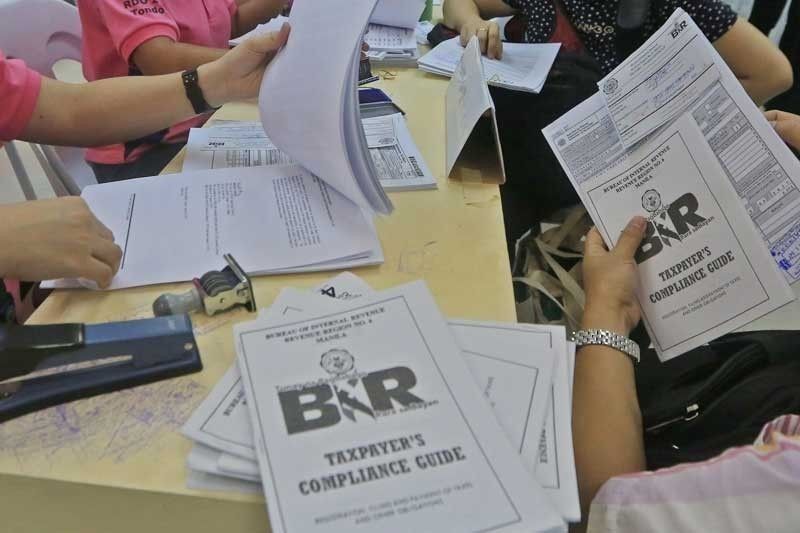House OKs CITIRA bill

MANILA, Philippines — The House of Representatives yesterday approved on third and final reading a bill reducing the 30 percent income tax on thousands of corporations to 20 percent over 10 years starting next year.
The proposed law also rationalizes the grant of tax exemptions or incentives on businesses.
The measure is officially called the proposed Corporate Income Tax and Incentives Reform Act or CITIRA, formerly Tax Reform for Attracting Better and Higher-quality Opportunities or TRABAHO bill. It was approved by a vote of 170-8 with six abstentions.
It is the third revenue bill the House, under the leadership of Speaker Alan Peter Cayetano, has passed in less than two months since the convening of the 18th Congress on July 22.
The House approved CITIRA despite opposition from the Philippine Export Processing Zone Authority, the Department of Trade and Industry and some foreign chambers of business and industry.
“It is the most significant economic legislation in 34 years. I thank the support of my colleagues and the robust House leadership as Congress withstood the most intense lobbying by huge well-entrenched business interests who wanted to retain their big profits and dividends,” Rep. Joey Salceda of Albay, the proposed law’s principal author, said.
“This measure is by far the most significant economic legislation with positive footprint on almost every sector of our economy - it sets the platform to pursue a better future for the next generation of Filipinos,” he said.
Under the bill, Salceda, who is ways and means committee chairman, said tax incentives would be “based on performance – job generation, use of local inputs, workers’ training, and research and development programs, and time-bound, instead of being enjoyed forever.”
Other House leaders shared his optimism on the potential benefits of CITIRA to the country and its economy and people.
Deputy Speaker Mikee Romero of 1-Pacman, an economist like Salceda, said the substantial reduction in corporate tax “could lead to more job opportunities and income for our people.”
“It would mean that businesses would have more investible income that they could use for expansion or for starting new ventures. That in turn would mean more jobs and workers’ income,” he said.
Romero said he hoped that the CITIRA measure would not result in revenue losses for the government. “We need more revenues especially for the universal health care program that aims to cover all Filipinos under Philhealth insurance coverage so they could enjoy free medical care,” he said.
Another deputy speaker, Luis Raymund Villafuerte of Camarines Sur, said the bill “will benefit some 90,000 small and medium enterprises through the gradual lowering of the corporate income tax rate to 20 percent from the current 30 percent, which is the highest in the region.”
Villafuerte said while SMEs pay 30-percent tax, more than 4,000 big corporations are levied a discounted rate of only six to 13 percent because of the tax privileges they enjoy.
“These big firms, many of them in the list of the top 1,000 corporations in the country, can well afford to pay the regular tax rate, yet they get to enjoy hundreds of billions of pesos in tax breaks yearly that the government could have better spent to hire more teachers and doctors, and build new roads, schools and hospitals especially in far-flung communities,” he said.
The CITIRA bill would eliminate this unfair practice, and put in place a better system that would be fair to all businesses, Villafuerte said.
Rep. Lito Atienza of party-list group Buhay said the measure was “hastily passed.”
“Many of us do not even have copies of this proposed law. We do not need this CITIRADOR to raise revenues. What the government should do is stop corruption at the Bureau of Customs by installing a system of pre-shipment inspection at the port of origin,” he said.
Albay Rep. Edcel Lagman, one of those who opposed CITIRA, expressed doubts on whether the bill could attract more investors.
“The rate of corporate income tax is not one of the major factors which attracts or discourages investment. The sponsoring committee admitted that tax regime ranks only number six after the prime factors of ease of doing business, adequacy of infrastructure, policy of predictability, cost of power, and internet speed,” he said.
Lagman said that the country is ranked 124 out of 190 nations in a World Bank survey on ease of doing business. “No amount of corporate income tax reduction would attract more investments if the Philippines fails to improve considerably its poor ranking on business efficiency,” he said.
According to many countries, receiving sizeable amounts of foreign investments have higher corporate tax like India (35 percent), France (31 percent) and Brazil (34 percent).
- Latest
- Trending




























